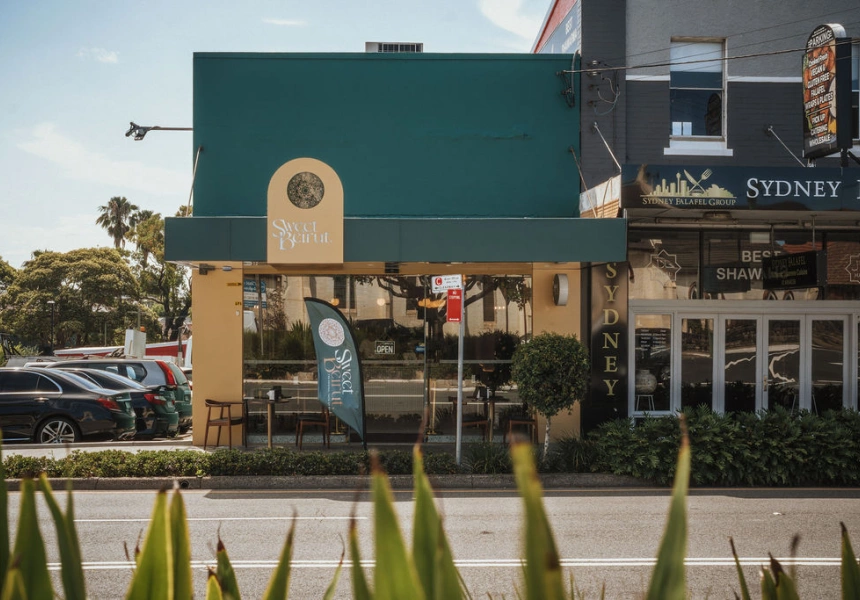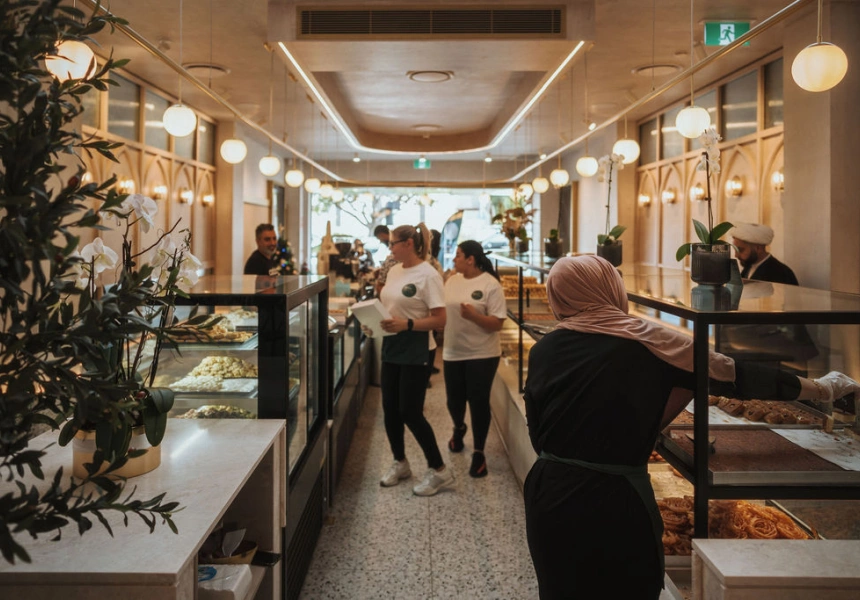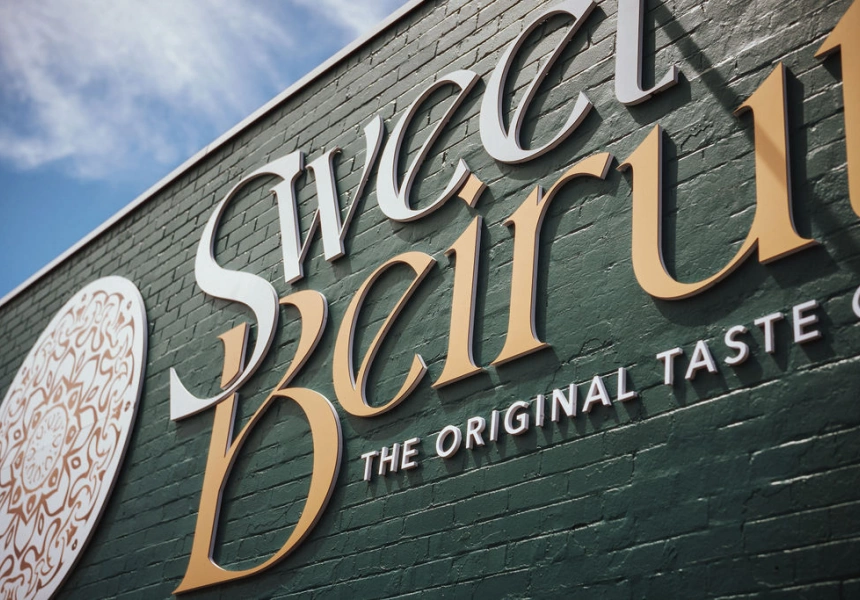Sweet Beirut is technically a shop, but the double-decker space – with 170 different Lebanese and French desserts on display, walls adorned with Lebanese arches and a dramatic staircase leading up to a chef’s window and seating upstairs – might be more aptly called an emporium.
“It’s a sweet shop, but really we wanted to build a destination, and give people the experience that they’re in a dessert shop in Beirut,” Hassan Awada, who co-owns the family-run business, tells Broadsheet. “The sounds, the smells, everything.”
Sweets are a pillar of Lebanese society. “There are a lot of sweet bars, where people will go out for dessert and coffee,” Awada says. “In Lebanon, it’s very traditional – you don’t visit anyone’s house without something, usually a pastry, in your hand. Lebanese people are very proud of their sweet suppliers. They like to show where they bought it, they like the most beautiful packaging. People go a long way to get the best.”
We think you might like Access. For $12 a month, join our membership program to stay in the know.
SIGN UPLed by Hassan’s son, chef Adam Awada, the Bexley store pumps out trays of baklava, knafeh, shaabiyat (cream-filled filo triangles) and znoud (crispy, filled cigars of filo) – all made from scratch – as well as macarons, tarts and delicate French cakes in a nod to France’s influence on the cuisine of the Mediterranean country. But Sweet Beirut isn’t just about Beirut. The store pays homage to Southern Lebanon’s sweet traditions too, offering a range of items that Hassan says can’t be found anywhere else in Australia.
“The first Lebanese people in Australia came from the north, and they influenced the way Australian-Lebanese eat sweets. Southern Lebanon was traditionally a poorer area; they didn’t have as much cream or nuts, so the recipes use more basic ingredients like ghee and syrup. They were limited and had to invent sweets to suit, but over time, they’ve become a delicacy.”
One example is mafroukeh, a rich dessert that consists of ashta (clotted cream) topped with nuts, riding on a base of buttery semolina. The dish is sweetened with rose water and orange blossom water syrup. Similar ingredients are used to make mad ashta, in which clotted cream is sandwiched between a semolina butter crust, then topped with pistachios and orange blossom syrup. The kitchen is baking treats all day – though many bites are shaping up to be favourites, regularly selling out.
Coffee is also an important part of the offering. The usual flat whites, cappuccinos and espressos join dark-roasted Lebanese coffee brewed with cardamom spice, as well as spicy green unroasted Arabic coffee.
“People from the Persian Gulf drink this green coffee. Green coffee beans are boiled together with saffron, cardamom and cinnamon. It’s a palate cleanser: clear, like tea, and a lot less potent than roasted coffee. It’s very yummy.”
Sweet Beirut is the culmination of a lifetime of focus and hard work for chef Adam. “Since he was a child, he always loved baking. He told me when he was seven, he wanted to be a chef and a sheik [Islamic religious leader]. At 18 he went to Lebanon to study and 12 years later, he’s back, and has achieved both dreams,” Hassan says.
“I came home to Australia and brought Lebanon with me,” Adam adds.
Sweet Beirut
485 Forest Road, Bexley
Hours
Mon to Fri 7am–9pm
Sat & Sun 7am–10pm



